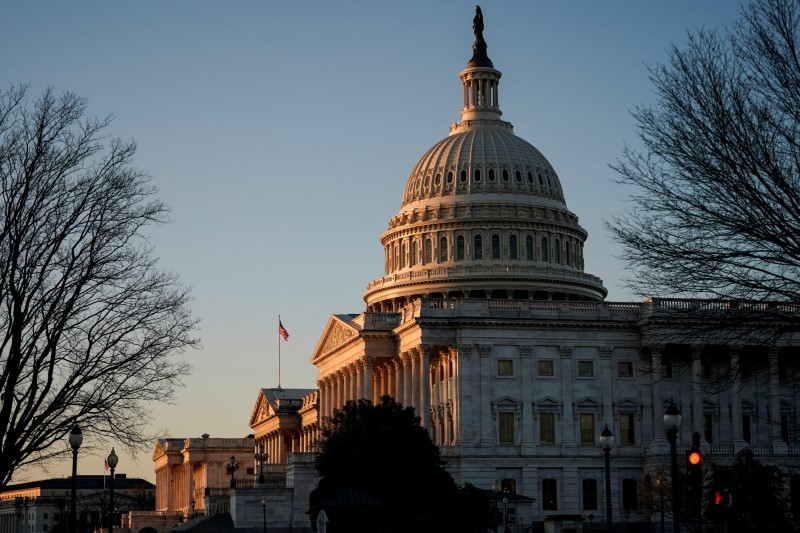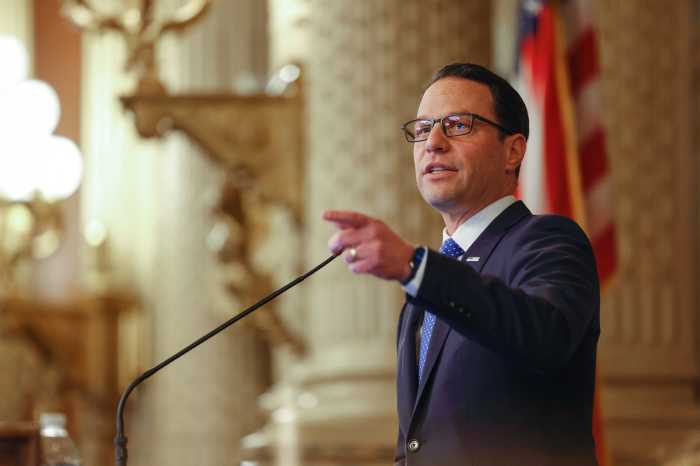By Richard Cowan and David Morgan
Bipartisan opposition in the Democratic-led U.S. Congress on Wednesday led top lawmakers to strike a plan for $15.6 billion in COVID-19 relief sought by the White House from a $1.5 trillion bill to fund the federal government and aid Ukraine.
House of Representatives Speaker Nancy Pelosi, in a letter to her fellow Democrats, noted that Republicans resisted the money and “many” House Democrats opposed the way in which the funding was being handled. As a result, Pelosi said, the entire $15.6 billion was being removed from the “omnibus” spending bill to fund government activities through Sept. 30.
“We must proceed with the omnibus today, which includes emergency funding for Ukraine and urgent funding to meet the needs of America’s families,” Pelosi wrote.
The news came following more than four hours in which debate on the legislation and votes were frozen, as Democratic leadership attempted to resolve the problem.
The legislation also contains $13.6 billion in security and humanitarian aid for Ukraine.
Democrats, who control Congress by razor-thin margins, and Republicans reached the $1.5 trillion deal overnight. One House Democratic aide said some states were facing the loss of hundreds of millions of dollars in federal aid under the new set of allocations for COVID-19 relief that had been proposed as part of that deal.
The top Republicans in the House and Senate did not immediately respond to requests for comment on the news.
With money for the federal government due to run out at midnight Friday, the House also plans to vote on a separate measure to keep the government funded through Tuesday.
This was seen mainly as a housekeeping step so that congressional clerks would have enough time to process the “omnibus” legislation following House and Senate passage. That clerical work could extend beyond the midnight Friday deadline when existing funding expires.
Acting White House budget director Shalanda Young urged the House and Senate to act promptly to send the Ukraine aid and government funding measure to the White House for President Joe Biden’s signature.
“The bipartisan funding bill is proof that both parties can come together to deliver for the American people and advance critical national priorities,” Young said in a statement.
The House was also expected to vote on the bill to ban Russian energy imports. The legislation builds on Biden’s newly announced ban by including moves to review Russia’s membership in the World Trade Organization. It would also renew and expand the Magnitsky human rights law to ease the way for further U.S. sanctions on Russia.
The omnibus spending plan will boost funding for domestic priorities, including money for infrastructure passed under an earlier bipartisan measure to revamp U.S. roads, bridges and broadband internet, they said.
The plan includes $730 billion in nondefense funding and $782 billion in defense funding.
“This bipartisan agreement will help us address many of the major challenges we face at home and abroad,” Pelosi and U.S. Senate Majority Leader Chuck Schumer said in a joint statement.
It also includes new protections to protect U.S. infrastructure from cyberattacks “by Russia and other bad actors.”
The measure will also reauthorize the Violence Against Women Act, Pelosi and Schumer said.
Reuters


































